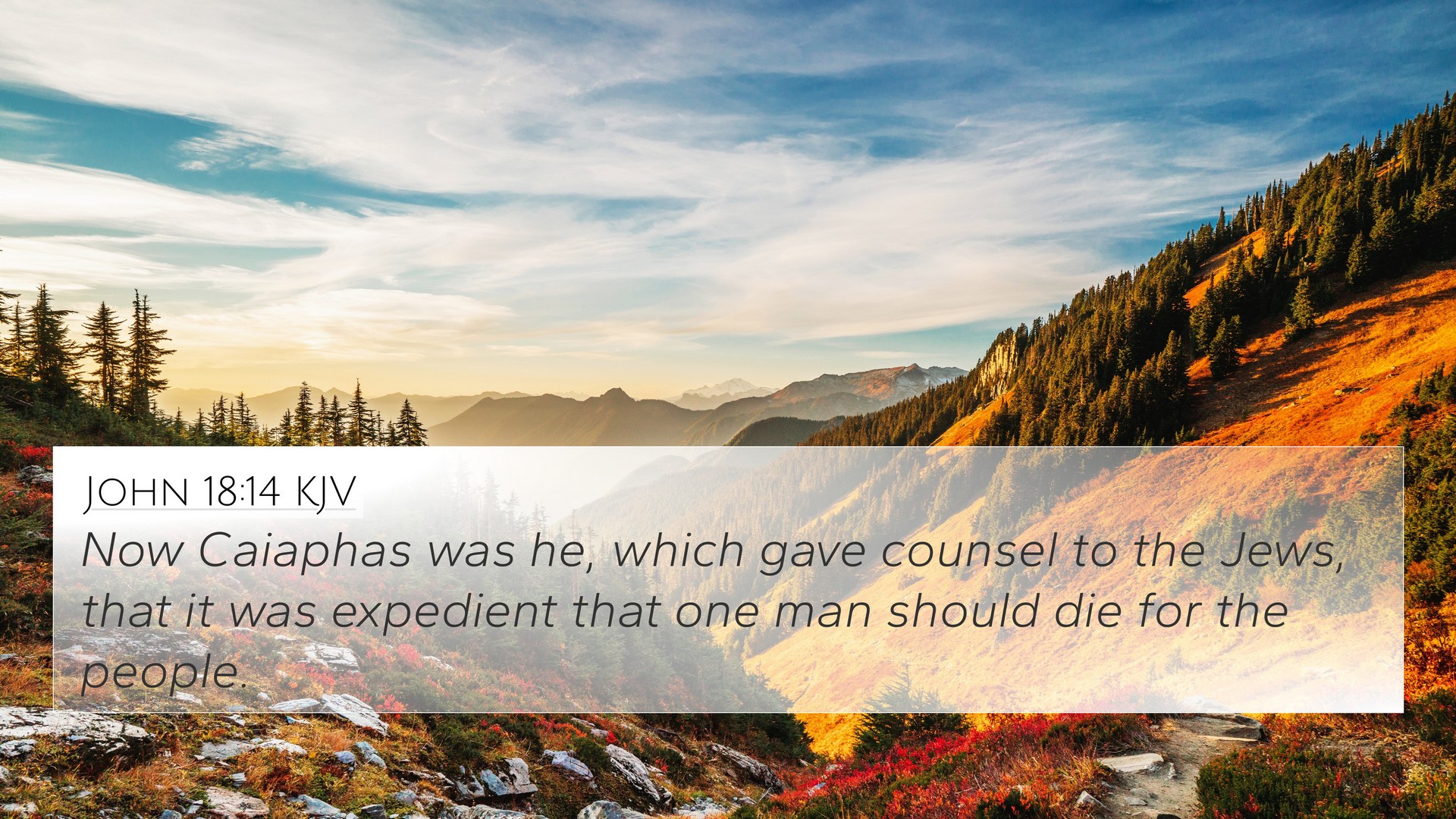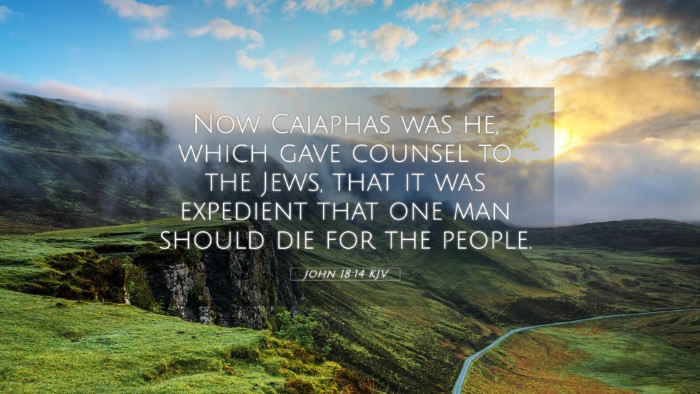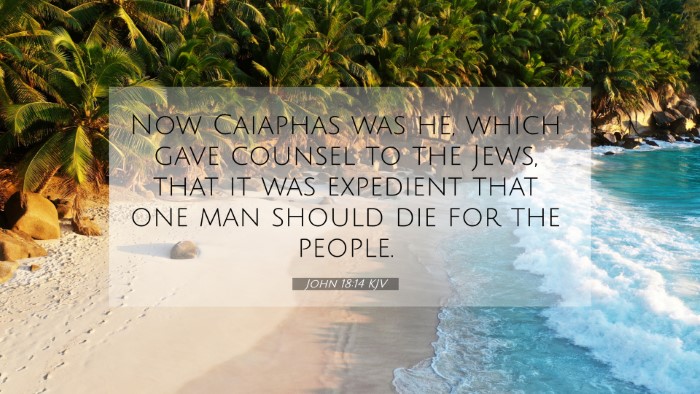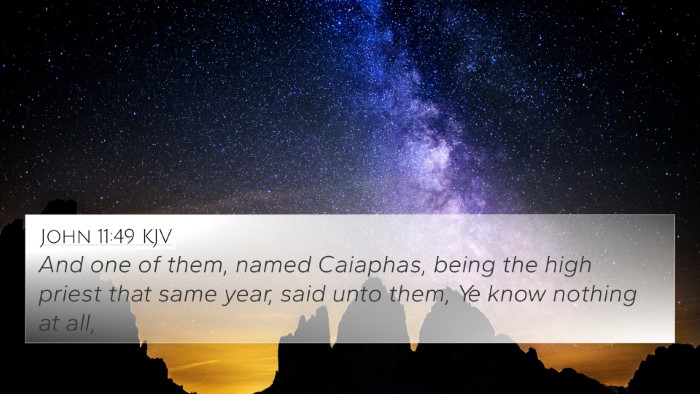Understanding John 18:14
John 18:14 reads: "Now Caiaphas was the one who had advised the Jews that it was expedient that one man should die for the people." This verse captures a pivotal moment in the narrative of Jesus’ trial and the broader theological implications of His sacrificial death.
Meaning and Significance
This verse highlights several key themes integral to the understanding of the Passion narrative and the sacrificial aspect of Jesus' mission. The mention of Caiaphas emphasizes the role of human authority in the unfolding of God's divine plan.
Theological Insights
- Caiaphas' Role: As the high priest, Caiaphas symbolizes religious authority and the Jewish council's intentions. His assertion that "it was expedient" indicates a pragmatic approach to justice, prioritizing national security over moral righteousness.
- Prophetic Significance: The statement reveals a fulfillment of the prophetic understanding of the Messiah's role as a sacrificial lamb, as seen in Isaiah 53:5-6. Caiaphas unwittingly proclaims a truth that aligns with God’s larger redemptive narrative.
- Universal Application: The idea that "one man should die for the people" connects to the broader theme of substitutionary atonement, a central doctrine in Christian theology emphasizing Christ's sacrifice for humanity's sins.
Cross-References
John 18:14 is enriched by various scripture connections:
- Isaiah 53:5-6: "But He was pierced for our transgressions..." - Foretelling the suffering servant.
- John 11:50: "It is better for you that one man should die for the people..." - A similar sentiment expressed earlier by Caiaphas.
- Romans 5:8: "But God shows his love for us in that while we were still sinners, Christ died for us." - Emphasizing Christ's sacrificial love.
- 1 Peter 2:24: "He himself bore our sins in his body on the tree..." - Further highlighting Christ’s redemptive purpose.
- Hebrews 10:11-12: "And every priest stands daily at his service..." - Contrast between Christ's sacrifice and the continuous offerings of the priests.
- Philippians 2:8: "And being found in human form, he humbled himself by becoming obedient to the point of death..." - The humility and obedience of Christ's mission.
- 1 John 2:2: "He is the propitiation for our sins, and not for ours only but also for the sins of the whole world." - Affirming Christ’s atonement for all humanity.
Comparative Analysis
The understanding of John 18:14 can be deepened by exploring its connections to other passages, focusing on the thematic elements of sacrifice and divine purpose:
- Connections between Old and New Testament: The prophetic utterances in Isaiah link to the New Testament fulfillment in Christ's passion.
- Comparative study of Gospels: Similar accounts in Matthew 26:4 and Luke 22:2 provide multiple perspectives on the conspiracy against Jesus.
- Inter-Biblical dialogue: Caiaphas' actions can be compared to the events surrounding other biblical figures who faced moral dilemmas.
Conclusion
In summary, John 18:14 serves as a crucial linchpin, combining historical context with profound theological insights. Caiaphas' declaration captures both the human and divine narrative of redemption, affirming that Jesus' death, while politically motivated, was divinely orchestrated for the salvation of humanity.
Tools for Further Study
Those seeking to explore deeper connections within Bible verses can utilize various resources like:
- Bible concordances for effective scriptural references.
- Cross-reference guides to enhance Bible study sessions.
- Comprehensive Bible cross-reference materials to find thematic links.
- Methods for identifying connections between Old and New Testament scriptures.



